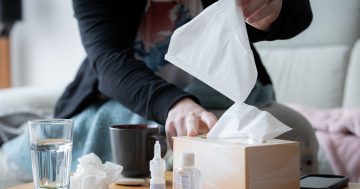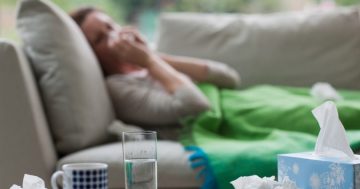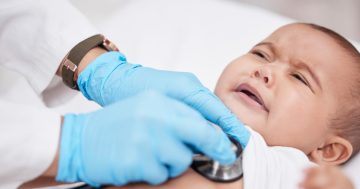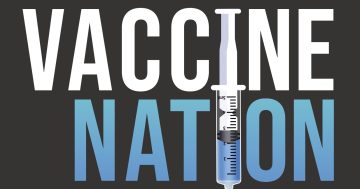 NSW Health has called on parents of children aged five to 16 to book their kids in for a flu vaccine with their GP or local pharmacist during the school holidays, in the face of rising influenza rates and hospitalisations among children and teenagers.
NSW Health has called on parents of children aged five to 16 to book their kids in for a flu vaccine with their GP or local pharmacist during the school holidays, in the face of rising influenza rates and hospitalisations among children and teenagers.
The call was made by NSW’s Chief Health Officer, Dr Kerry Chant who said the State’s latest data is concerning with a 37 per cent increase in Emergency Department (ED) presentations with influenza-like illness and a 30 per cent increase in admissions to hospital in the week to 2 July compared to the previous week.
Dr Chant said children aged under 16 years represented around half (54 per cent) of all ED presentations for influenza-like illness, and over a third (around 40 per cent) of all influenza-like illness hospital admissions in the past week, showing that children are being disproportionately affected by influenza this year.
“Since May, 16 children have been admitted to intensive care with life-threatening complications from influenza at Sydney Children’s Hospital, Randwick, the Children’s Hospital at Westmead and John Hunter Hospital, with numbers continuing to rise,” Dr Chant said.
“These complications include serious heart, brain, and muscle-related complications,” she said.
“In recent weeks we have seen influenza cases rising fastest among very young children as well as those aged five to 16 years, with these two age groups often accounting for around half of all flu cases diagnosed in NSW each week.”
Dr Chant said that sadly, children’s hospitals were seeing increasing numbers of those children being admitted for care and some of these patients are seriously unwell.
“The very best thing parents can do to keep their kids well this winter, and to reduce the risk of them being hospitalised due to influenza, is to ensure their children receive a flu vaccine if they haven’t yet,” Dr Chant said.
She said those considered to be at higher risk of severe illness from influenza are eligible for a free flu vaccine and include:
* Children aged six months to under five years;
* People aged 65 and over;
* Aboriginal people from six months of age;
* Pregnant women; and
* Those with serious health conditions such as diabetes, cancer, immune disorders, obesity, severe asthma, kidney, heart, lung or liver disease.
“We can all take steps to help protect ourselves and our loved ones from COVID-19 and flu,” Dr Chant said. “From COVID-19 and flu, including:
* Stay up to date with your recommended flu and COVID-19 vaccinations;
* Stay home if you have cold or flu symptoms;
* Wash or sanitise your hands often;
* Wear a mask in crowded, indoor places;
* Get together outdoors or in large, well-ventilated spaces with open doors and windows;
* Talk with your doctor now if you are at higher risk of severe illness from COVID-19 or influenza to make a plan about what to do if you get sick, including what test to take, and discussing if you are eligible for antiviral medicines;
* Don’t visit people who are at higher risk of severe illness if you have cold or flu symptoms or have tested positive to COVID-19 or influenza; and
* Take a rapid antigen test to test for COVID-19 especially before visiting vulnerable loved ones.
More information on Influenza can be found on the Health Department website at this PS News link.










